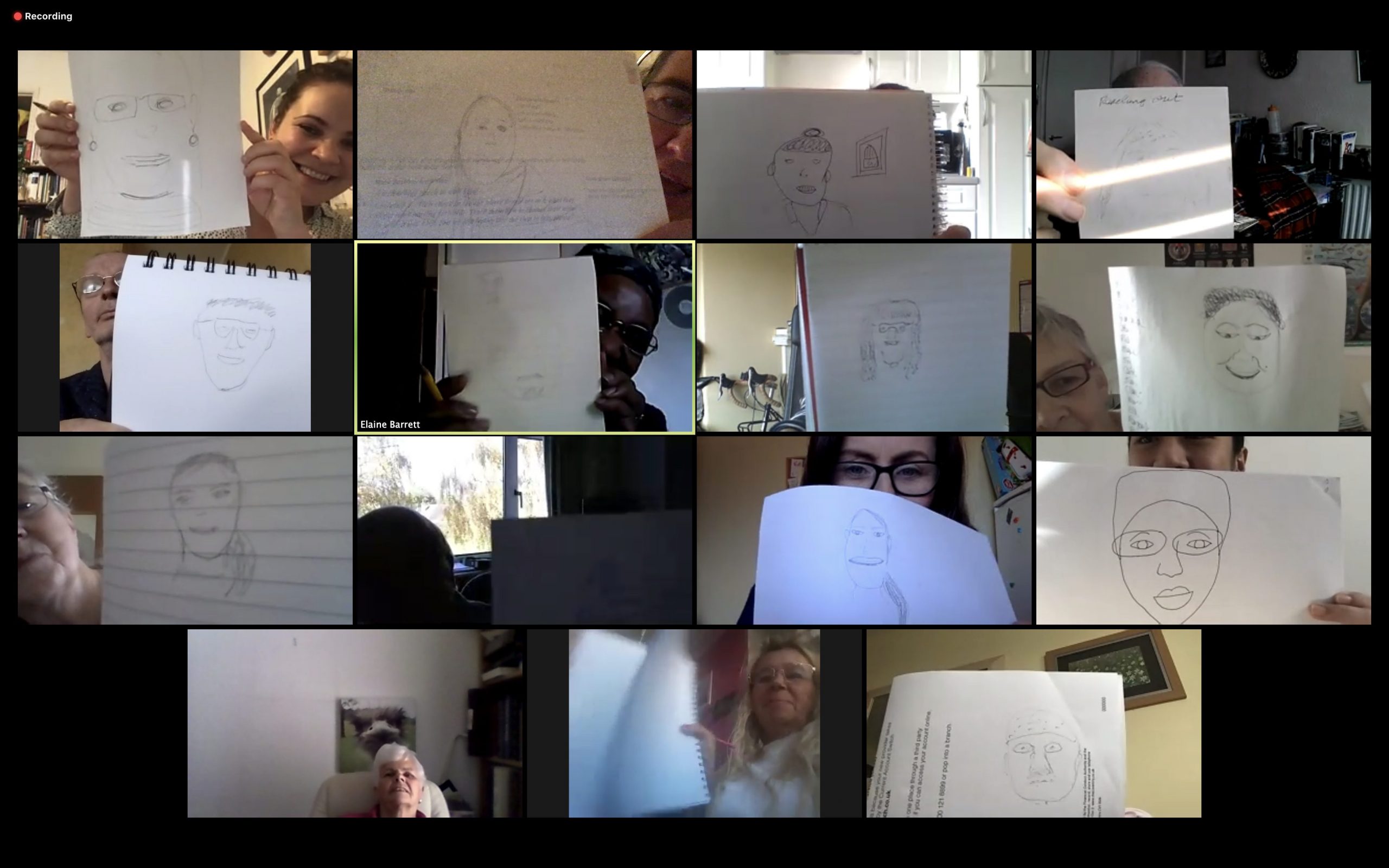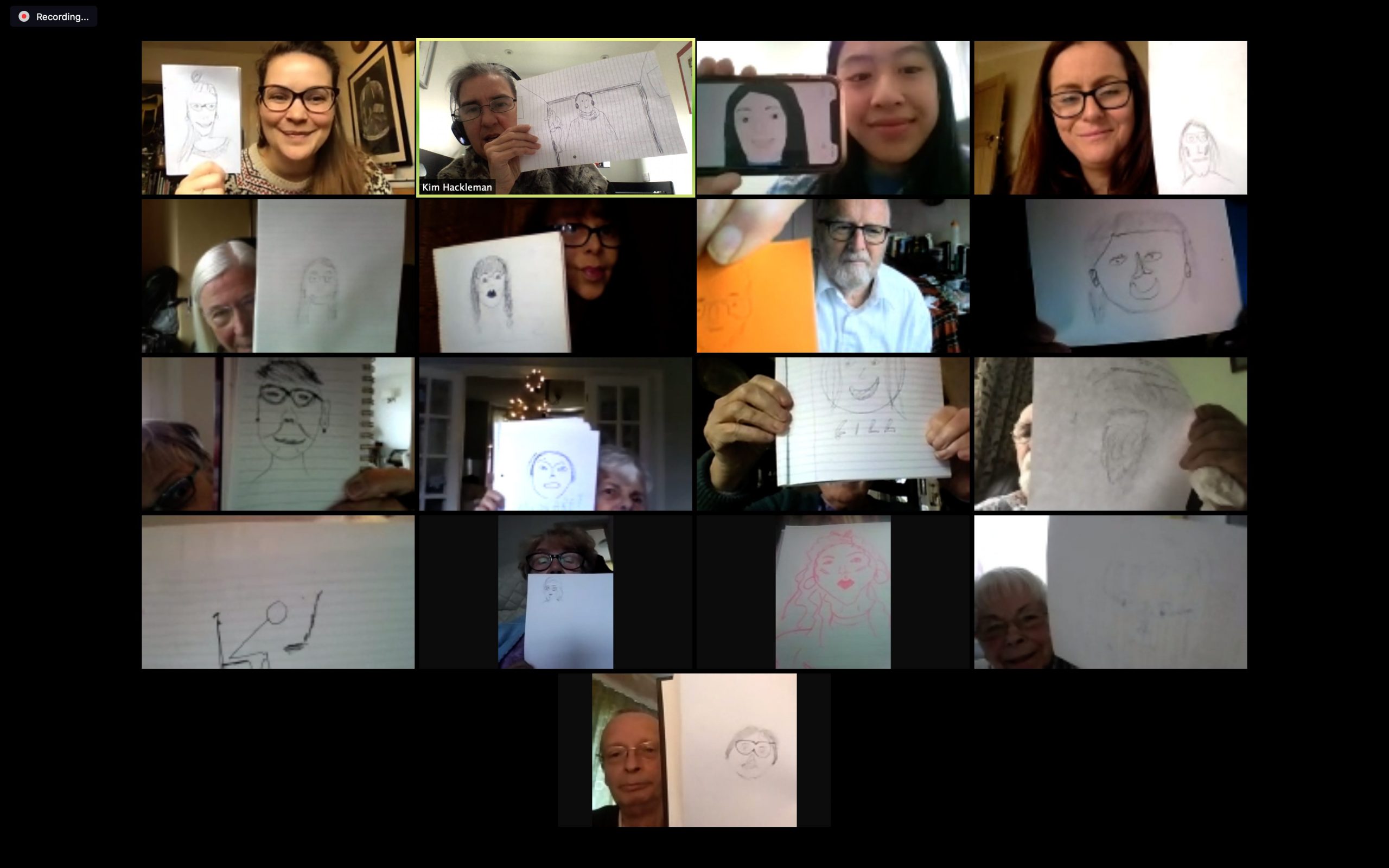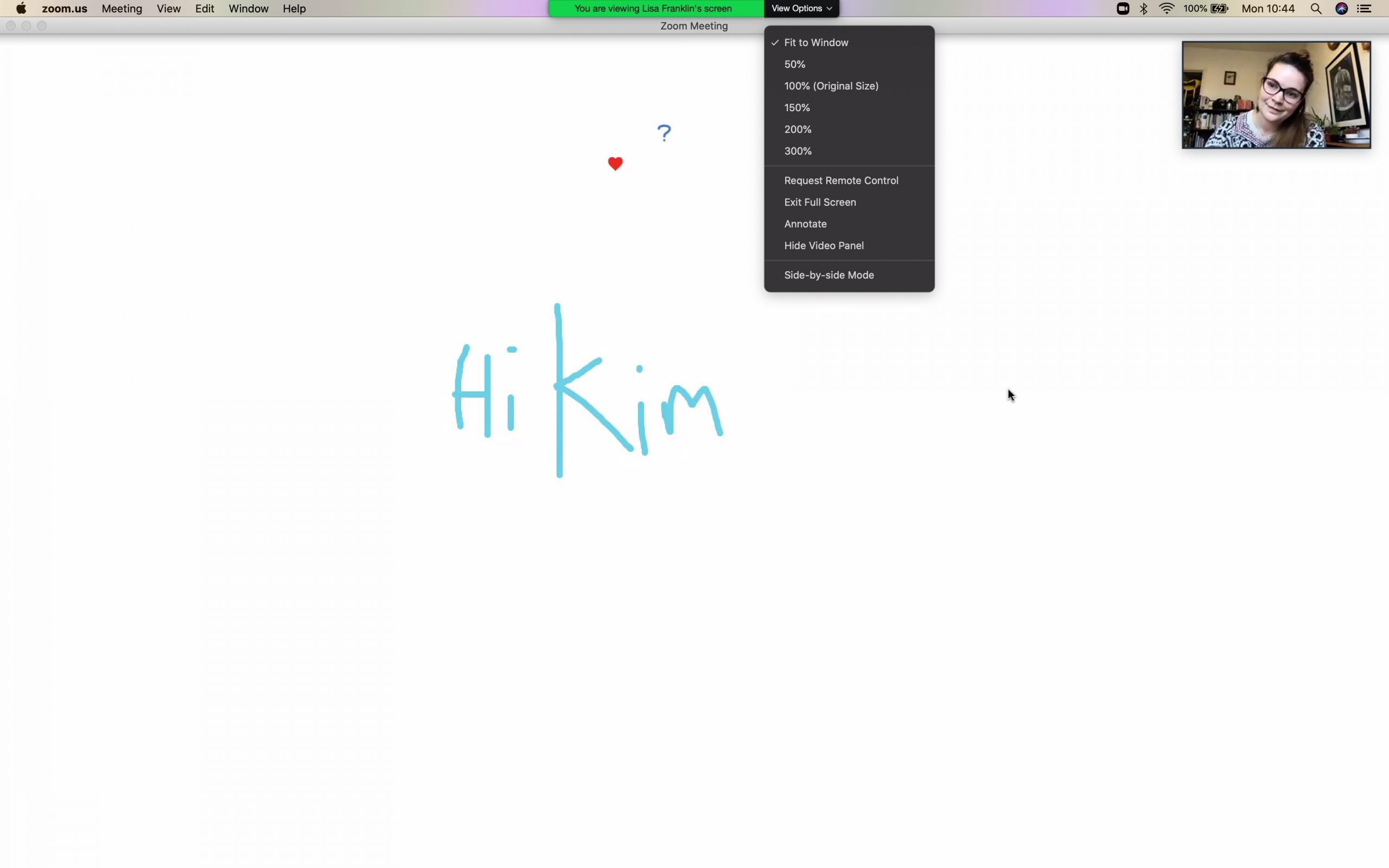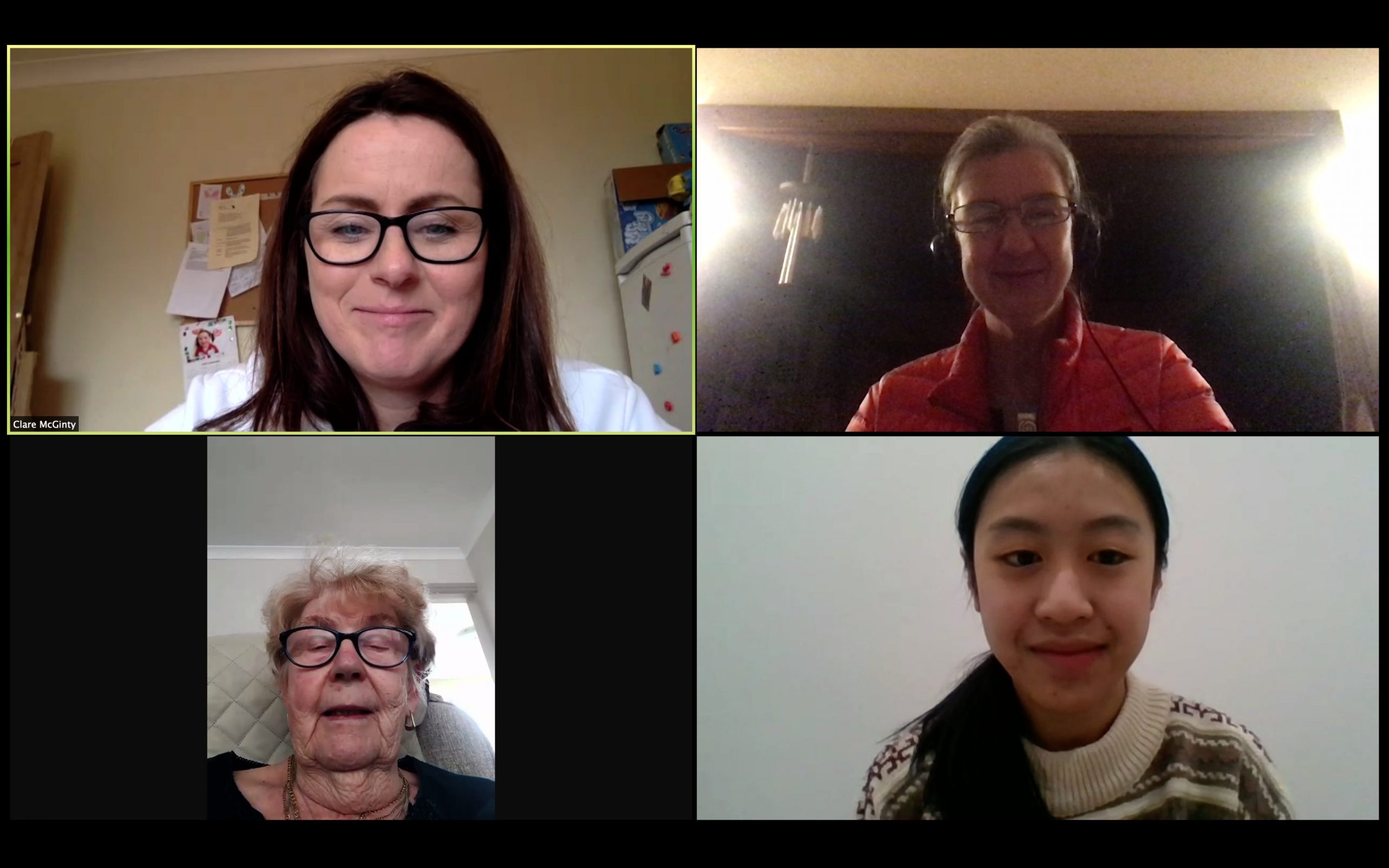Arts Gym member Margaret Emerton reflects on a term of online workshops under lockdown
With in-person workshops unable to take place for much of 2020, like everyone, our Arts Gymnasium group for over 50s have had to adjust to new ways of working together. As their autumn term draws to a close, Arts Gym member Margaret Emerton reflects on her experience of taking part in online poetry workshops, and the skills and confidence with technology that the group have gained this year.
Along with the rest of the world, this term, the Arts Gymnasium group had to adapt to a new way of working, being unable to meet in-person at the Belgrade.
We found the answer to the challenges in online workshops, held via Zoom, but with members of the group ranging in age from people in their 50s to those in their 80s, this proved to be a little challenging.
While those in their 50s had been the first generation to have IT lessons in school and mostly continued to learn as adults, the older members generally had much less experience with technology. For those in their 80s, many of whom had left school at 14 or 15, their early experiences of technology were red phone boxes at the end of the road, or maybe a 12 inch black and white television in the corner of the family room. Some had eventually moved into jobs that required them to use computers, but others have struggled to catch up as the internet has become more and more integral to everyday life.

The beauty or fear of technology is that there is always something new to learn. For some it was a massive step, while for others it was simply a case of refining their skills.
Knowledge gaps aside, lots of us embraced the challenge, and we had a good turn-out to our sessions. Fourteen members logged on from numerous different locations – one travelling between places on a train, and our group leader, Kim Hackleman, guiding us from her dad’s house in America. We also had some extra support from Lisa Franklin, one half of the Belgrade’s Springboard company Gertrude, which specialises in digital theatre and using technology to creatively connect people.
The focus of the Zoom sessions was creativity, and our task was writing poetry in the Japanese Haiku style, on the subject of our memories from the last nine months. We reflected on the two lockdowns and the short period of relative freedom in between. For some, what they remembered was a time of and quiet, a chance to stop rushing about and to smell the flowers or listen to the birds. For others, it had been a time of sadness, loneliness and missing hugs from family and friends.

The first challenge was getting our head around the syllables – it felt a bit like going back to primary school spelling lessons! A haiku should have three lines – the first with five syllables, the second with seven, and the third with five.
The second challenge was trying to focus on individual words instead of sentences. Because haikus are so short, every word counts, so we focused on finding words that were full of feelings, sound and vision.
As we created the poems they were added to the Zoom chat for everyone to see. They were amazing – some were very emotional, others very funny.
Once we had our words it was time to add sounds. We discussed what sounds were brought to mind by individual words. The word impatient, for example, made us think of ticking clocks, tapping fingers or pacing feet, while new life gave us the cry of baby birds in a nest. Slowly our poems began to come to life.
Now for the technical part: it was time to record our sounds and share them. With Lisa’s help, we all managed to do that. Without a proper recording studio, we had to improvise with what we had at home – a manual clock, a ringing bell or the cat’s squeaky toys, for example. Venturing outside, we could capture the sounds of children, birds, a windy day or the creak of a door.

From words and sounds, we moved on to images. Again, we had to think creatively about how we captured them from home, using a mixture of photographs, drawings and even the digital white board on Zoom – which showed just how far we’d come since our first session in terms of confidence with the technology.
The final task was to record our poems for a digital storybook, to be shared on the Belgrade’s social media platforms. We’re really excited to share our work with you!
Sadly some of our friends were unable to join us, for a variety of reasons: lack of equipment or broadband (both of which are very expensive), a lack of confidence in using the technology or just anxiety about seeing and hearing themselves on-screen. But I hope that more people will be inspired to join us next term after seeing our digital storybook.

Also working with us this term were Clare McGinty and Nur Damit, Occupational Therapy Students from Coventry University. Their research into helpful resources for us means that we can continue our learning after the term is over. Meanwhile, they will take away with them a greater understanding of the challenges and benefits of technology and creativity for the older generations they will be supporting , and how those working in the arts and health sectors can partner to support people together.
So what’s next? Although we look forward to returning to in-person sessions at the theatre, realistically, we know that will be several months away. Happily, we have proved that we can adapt and still be creative, even when we’re apart. Just like Coventry, our City of Culture, has always done, we will rebuild, create hope and inspiration for others and continue to learn from the past, evolving into a brighter and better future.
You can find out what the group created by watching the video below from 12.30pm today!
